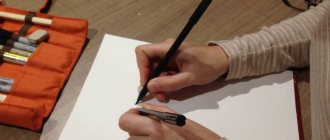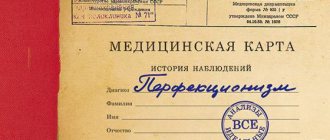- Essays
- 9th grade OGE
- Honesty, what is honesty?
At all times, there have been such concepts as love, loyalty and friendship. Among them, the word honesty stands out as a bright spot, which to some extent is a kind of basis for these categories.
Honesty is one of the components of the moral side of a person. It is associated with the ability to express thoughts and feelings directly, without confusion, whatever they may be. These are motives that come from the depths of the soul. Thoughts that are fueled by integrity and truthfulness.
Where there is honesty, there is also loyalty, integrity and conscience. This concept should accompany a person throughout his life. If such a pattern is violated, then deception comes into force, for which sooner or later one becomes ashamed.
Lack of honesty leads to doubts and a person's split opinion. Each of us can stumble at least once in our lives. Then comes acquaintance with this quality. Having experienced awkwardness or fear, a person sees two ways - lies or sincerity. Deception prevents you from leading a healthy lifestyle. Joy, respect from others, trust fill the heart when there is nothing to hide, there is no stone in one’s bosom. Dishonesty is, first of all, self-deception, which weighs heavily on the soul. To avoid omissions and excuses, you need to learn to admit your own wrongness and develop this quality of character in yourself.
If we strive for kindness and decency, then honesty will certainly become a mentor in enriching the moral side of a person. It becomes an assistant in acquiring other equally important qualities such as straightforwardness, self-confidence, lack of boasting, which save a person from weaknesses, help to acquire willpower, and be successful in every endeavor.
In any area of our life, a person experiences the influence of honesty from the outside or encounters it personally, earning respect or being criticized by others. Thus gaining experience, we give a correct assessment of ourselves, choosing the right actions in the future.
Option 2
Honesty, it would seem, is an ordinary word, but what deep meaning lies in the most ordinary concept. To be honest is to be brave. Being brave means always telling the truth under any circumstances.
It would seem that it might be easier to tell the truth, admit your guilt or apologize for your action. But, in fact, this is quite difficult and only brave and strong people are always ready to tell the truth, to be honest not only with themselves, but also with the people around them. After all, there is always the opportunity to hide the truth and remain a good person in the eyes of your parents or comrades. But then you will have to constantly be afraid that the truth will be found out, and trust in yourself and your words will need to be restored.
Honesty is a virtue that every parent instills in their child from early childhood. To be honest means to be well-mannered! To be honest means never to let one blush for oneself, because an honest person will never shift his guilt onto someone else, but will boldly speak the truth and not be beaten if he is scolded for it.
An honest person is a responsible person, and if you made a promise, you will definitely keep your word and fulfill your promise. An honest person is always surrounded by many friends, he is valued, loved, and respected. You can always rely on an honest person and know that he will not let you down and will not leave your friends and comrades in trouble.
Of course, honesty should not be confused with straightforwardness. There are many different situations when people, boldly expressing their opinion to a person’s face, do not even think about the fact that the interlocutor is uncomfortable at the moment. We are all different with our own tastes and preferences in choosing clothes, music or friends. You should not directly express your truth, which at the moment may offend your interlocutor.
Why do people lie? It's simple, in the eyes of their comrades they want to look better or more successful. In this way they want to attract attention and attract new friends. Only once you doubt the veracity of the words of a deceiver, you constantly begin to look for lies in every phrase. When trust is lost, both friendship and respect for such a person are lost.
Honesty, trust, respect go hand in hand in life. And if such a virtue as honesty is firmly embedded in a person’s character, he will always be successful in all his endeavors. Telling the truth means not hiding behind a mask, but being yourself!
Fear and horror on the Volga
On September 1, 1921, the American ship Phoenix arrived in Petrograd with the first cargo of food for Soviet Russia. In the very first weeks of September, work began to boil in Petrograd and Moscow - ARA employees began organizing children's kitchens, first in capital cities, and then in starving regions.
Help came not only from America: in August, at the Geneva Conference, the creation of the International Famine Relief Committee was announced, headed by the polar explorer and public figure Fridtjof Nansen. He, too, quickly launched the process of organizing assistance to the Russian starving people, and already in the fall of 1921 he came to Russia in person.
Food and supplies for the starving in Russia, February 16, 1922 Photo: AP/TASS
Famine relief committees began to appear in different countries of the world - in Sweden and France, Turkey and Britain, Germany and Italy. American Quakers, representatives of Jewish organizations, and representatives of the Turkish government traveled to Russia to help Muslims living in the affected regions (not only in the Volga region, but also in the Crimea, where the famine reached its peak in the winter of 1921-1922). Lenin was irritated and embarrassed by foreign activity - he even ordered that Pravda not publish daily reports on how much money was collected in different countries to help Russia: they say, no one needs to read such “stories”, and it is pointless to waste paper on them .
What foreigners saw on the Volga impressed even those of them who went through the war and took part in the post-war reconstruction of Europe. The first international representatives arrived in the Volga region at the end of September - beginning of October: the trains ran slowly, there was not enough firewood and coal (over time, the Americans had to bring coal with them), and many trains with food along the way were simply stolen (according to rough estimates, this was the fate accounted for up to a third of the total supply) or were sent in the wrong direction.
Douglas Smith's book, The Russian Job: The Forgotten Story of How America Saved the Soviet Union from Collapse, recounts the memoirs of a young American ARA employee and future diplomat, James Childs, and the historian Frank Golder, who went with him to Russia: “They reached Samara on the 14th. “There is dirt and ruins everywhere,” Golder wrote in his diary. — The windows are broken; the streets are empty, littered with garbage and dead animals. Hotels that were once compared to the best in Europe are now empty shells; Church spiers are turned into radio stations, and luxurious houses are turned into barracks. In short, the city is a ruin, a shadow of the past. People survive on peels, potato peelings and bones."
There were truly terrifying pictures everywhere. People who, due to hunger, reached the extreme point and became cannibals, women who offered themselves to anyone for a crumb of bread, mothers who went crazy and ate the corpses of their own children. There were no longer dozens of cases of cannibalism, but hundreds. When information about the scale of the famine reached the Moscow branch of ARA, and then went overseas, it became clear that we needed to act more radically - and help not only children, but everyone in need of urgent help.
Providing linen and fabrics to the hungry. Volga region, 1922Reproduction TASS
The director of the ARA in Russia, Colonel William Haskell, reported to Washington that the starving people needed not only food, but also warm clothing, since they had only dirty rags left. The Soviet government and ARA entered into an additional agreement - and the Americans began to supply clothing to Russia in the fall.
Most of all, the world community was afraid of the fate of starving children. In Britain, the Save the Children Fund was organized in 1921, whose activists collected food and clothing parcels, which were then sent to Russia. British journalist Edward Fuller went to the Volga in November 1921 to follow the fate of the funds allocated for relief, and also to see for himself the complexity of the situation.
In his articles, he described a children's hospital in Saratov, created by a British foundation. There he saw dozens and hundreds of sad children, their heads shaved due to lice. Fuller dispelled rumors about Russian passivity: many Westerners believed that the famine was a myth and a propaganda trick invented by the Bolsheviks in order to lure help from Western countries. Fuller spoke about the dedication of the Russians in the fight against hunger and pointed out the incredible complexity of the situation.
At the same time, Americans from the ARA or the Nansen mission were often arrested, and it was very difficult to obtain their release. The story of the Lutheran pastor Kurt Muss is especially indicative - he worked in St. Petersburg, then moved to America and from there he was sent on a business trip to the Volga and southern Russia in order to study the economic situation. Muss ended up on the Volga in the summer of 1922 - and sent an extremely detailed report from there to the USA.
The report was intercepted by the GPU, the state political department under the NKVD. Moussa was arrested, despite active public protests, sent to Solovki, and in 1924 exiled to the Yaroslavl province. He returned home to Leningrad only in 1926, but not for long - in 1929, during another attack on the church communities of Leningrad, the pastor was arrested and sentenced to 10 years in the camps. In 1937, Moussa was shot near Murmansk.
The activities of the ARA in Russia were supervised by a special commission of the Council of People's Commissars established by Lenin, headed by Alexander Eiduk, a Latvian security officer known for his extreme bloodthirstiness and cruelty.
By mid-November, the organization had deployed kitchens in all major settlements of the Volga region. ARA's activities were supported by money allocated to it by the US Congress (about $18 million), private donations, as well as funds received from the Soviet government, which was actively involved in the sale of church decorations and gold seized from private individuals (about $11 million).
It cannot be said that the volume of food per person was colossal. You can roughly estimate the diet using the children's menu calculated for the Tatar Autonomous Soviet Socialist Republic. A child was supposed to have about 28 grams of cocoa, 113 grams of sugar, 254 grams of milk, 706 grams of flour, 141 grams of beans, 242 grams of rice, 60 grams of fat per day. On Monday and Thursday the children received warm and sweet cocoa, on Tuesday and Friday - rice, on Wednesday and Sunday - rice and noodles, and on Saturday - beans. Bread was available daily. But even this meager ration was enough to keep the children alive, although the ARA understood that such rations were insufficient.
In addition to kitchens, ARA developed another hunger relief system - targeted parcel operations. To inform residents of Russian regions about it, ARA distributed brochures among them in which they had to answer questions about their names, whether they had relatives abroad and whether they needed food.
These postcards were collected, then foreigners got involved - special centers were created outside of Russia, where every citizen who wanted to help the hungry in Russia could buy a coupon for $10 (the coupon had already been written down in advance to one of the Russian residents who filled out the postcard). Then ARA found the recipient of the package and gave it away - about 53 kilograms of food: 22 kilograms of flour, 10 kilograms of rice, 1.2 kilograms of tea, 9 kilograms of fat and sugar, 20 cans of condensed milk.
Canteen for the hungry in the city of Pokrovsk (now Engels), 1923 Photo: TASS
Expenses steadily increased, Congress appropriated additional funding, and by the end of its two-year work in Russia, ARA had spent more than $60 million on famine relief. But the total amount of money that foreign funds spent in Russia was, of course, much higher. Contributions were made by the Nansen Mission, Save the Children Alliance, Quakers, Swedish Red Cross, German Red Cross, Vatican Mission, Joint and Turkish Red Crescent.
The Volga region was the territory that was talked about and written about most often, but for the ARA itself it was not a priority. The Americans helped the starving in 38 provinces - in the Crimea and the Caucasus, in the Urals and Siberia, in the south of Russia and Kazakhstan, in Moscow and Petrograd. In Crimea, ARA worked together with the Turks, who sent tons of grain to the Crimean Tatars, despite the fact that the war for independence was in full swing in Turkey. In many regions of the Volga region, the Nansen Commission shouldered the brunt of it - in some places its representatives fed up to 60-70 percent of the local starving people.
ARA agents were everywhere. They accepted deliveries of wheat and corn in Odessa and Feodosia, transported food on camels near Tsaritsyn, sailed on ships along the Volga, opened more and more kitchens in Moscow, trying to feed everyone in need. And still they were not enough. In March 1922, Chuvash newspapers regularly wrote about cases of cannibalism: “In Ibresinsky district, peasant woman Sofia Yalaldikova tried to eat her dead daughter. After she was not allowed to do this, she ate the corpse of a dead dog and died in agony. Peasant Ignatius Ivanov from the Cheboksary district, together with his son Mikhail, 6 years old, stabbed his daughter Evdokia, 10 years old, and ate her at 3 days old. In the Churachik volost, a father and mother strangled their 3-year-old daughter and were about to eat the corpse, but they were interrupted by neighbors who accidentally entered.”
The summer and early autumn of 1922 were the time of maximum workload for foreign organizations in Russia. Their activities seemed completely inappropriate to the Bolshevik government - and starting in the fall of 1922, statements began to be published in the Soviet press that the famine had generally been eliminated. People's Commissar for Social Security of the USSR Vinokurov stated that “with the harvest of a new harvest, the former hungry areas came out of the famine zone.”
The fight against hunger was ending. Hunger - no.
Essay What is honesty?
Honesty is one of the most important qualities of a person. This is the ability to always admit that you are wrong and be sincere in any situation.
Everyone has been taught since childhood that lying is bad. But over time we forget about this, because once we lie, we will continue to do so. To undertell, to embellish, and thus simply to lie, these are ordinary things in our everyday life. We think that it will be easier and simpler for us. But, over time, everything secret becomes an obvious and clearly expressed lie for everyone.
You need to be able to express your thoughts honestly and this is the only way to solve this or that situation. An honest person always inspires trust in the people around him. After all, they do not see negative qualities in him, but only kindness and sincerity. You can rely on such a person and have a good time together. Knowing that he will never discuss you or say something behind your back. There are very few such people and it is very lucky to have such a friend. I believe that lying is bad, first of all, for yourself. After all, after lying to someone dear to you or even just a friend, you feel morally depressed. You will not be able to remember all your lies and someday you will misspoke. You will most likely feel ashamed, and you will want to fix everything and return it, but people will stop trusting you. You will lose what is most precious, but only some omissions and secrets. And it’s very difficult to regain people’s trust. Having caught you in a lie once is enough to stop communicating with you altogether.
The main thing in a person is honesty, when he is trusted, and he can be himself. Honest people are highly valued in our gray world, do not become one of these evil and selfish people who have forgotten about moral values. I respect honest people and try to be a truthful and polite person. But this is not as easy as it seems from the outside; you need a lot of strength and nerves, which are often lacking. Try to make this world a little kinder and more honest.
9th grade
Popular writings
- Essay Theft
Theft is the illegal appropriation of a material object or intangible object belonging to another person. Theft can only take place where there is a right of ownership. - Analysis of Pushkin's work The Bronze Horseman
Alexander Sergeevich Pushkin is the author of the work The Bronze Horseman. In 1833, the work was finally completed. The author collected all the opinions regarding Peter the Great in those days - Essay The image of Ilyinichna in the novel Quiet Don (characteristics of the heroine)
Cossack woman Vasilisa Ilyinichna is one of the heroines of the epic novel, the mother of the brothers Per and Grigory Melekhov, the wife of Pantelei Melekhov. The image of Ilyinichna is a collective one, personifying a simple Russian woman
The path to yourself, or How to be honest with yourself
This is the first article in a series of materials about honesty towards yourself and life.
kluchimasterstva 45.2K
followers











